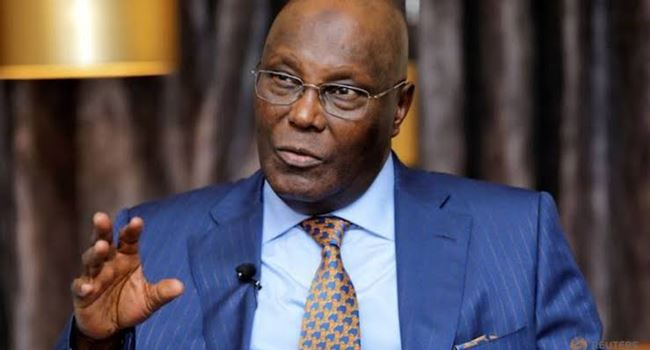Politics
Atiku slams Nigerian govt over growing debt profile as economy, inflation spiral

Atiku Abubakar, the Peoples Democratic Party’s (PDP) presidential candidate, has warned the Federal Government that taking on more debts will never be a solution to the nation’s debt problems.
Former vice president Atiku claimed in a statement on Tuesday that the administration had been overly optimistic about the reported growth rate of 3.4% since the National Bureau of Statistics (NBS) announced the GDP numbers for Q2 2022 last week.
According to him, the economy is in worse shape than the All Progressives Congress (APC)-led administration is ready to acknowledge.
The former president bemoaned the fact that the level of suffering among the populace remained unchanged under President Muhammadu Buhari’s APC.
The statement partly read, “Also, debt levels continue to rise while the fiscal capacity to service its debts is declining. All these are enough to erase the perceived gains from output growth.
Read also: Atiku advocates e-govt system in Nigeria
“Having run out of ideas, it appears that our unprecedented level of indebtedness is whetting the government’s appetite for more debt. This is a recipe for macroeconomic instability.
“We challenge the National Bureau of Statistics to share with the public their recent statistics on poverty, unemployment and commodity prices — the reality of which will leave no hope for the common man.
“Like I have said before, increasing debts will never be a solution to our indebtedness. My government, if elected, will halt the rate of debt accumulation and instead focus on private-public partnerships in financing development.”
According to a study by the Debt Management Office, Nigeria’s overall debt stock increased by N2.05 trillion from the N39.56 trillion recorded as of December last year to N41.6 trillion in the first quarter of 2022. Nigeria’s total debt increased to $100.1 billion in dollars.
In a similar vein, Nigeria’s debt-to-GDP ratio increased from 22.47% in December 2022 to 23.27% in the first quarter of 2019. Even while this is below the 40% self-imposed ceiling, the rate is increasing more quickly as a result of higher borrowing and moderate economic growth.
Join the conversation
Support Ripples Nigeria, hold up solutions journalism
Balanced, fearless journalism driven by data comes at huge financial costs.
As a media platform, we hold leadership accountable and will not trade the right to press freedom and free speech for a piece of cake.
If you like what we do, and are ready to uphold solutions journalism, kindly donate to the Ripples Nigeria cause.
Your support would help to ensure that citizens and institutions continue to have free access to credible and reliable information for societal development.
























